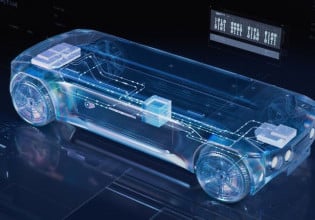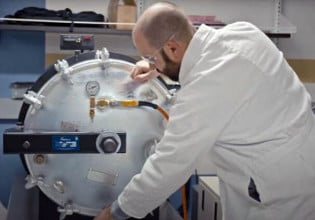Performance and Power for White Goods, Industrial and Automotive Systems
Renesas Electronics Corporation today announced the availability of the new CC-RL C compiler for the RL78 Family of 16-bit microcontrollers (MCUs). The new CC-RL C compiler takes advantage of the trusted RL78 MCU Group's low-power innovations and achieves increased processing performance to respond to industry needs for high performance and low power consumption in home appliances, industrial, and automotive systems.
Next-generation home appliances, industrial, and automotive systems require MCUs that deliver faster processing speeds to support the increasing diversity and performance of functions provided by these types of motor-based systems. The new CC-RL C compiler improves performance by three times (Note) compared to the existing Renesas compiler. Additionally, the interrupt response performance time is improved by six times (Note), which ultimately provides customers significantly higher performance in application systems. The CC-RL C compiler also enables longer operating times for battery-operated home appliances and industrial equipment such as health care equipment and fire detectors, offering a combination of high performance and reduced power consumption for RL78 MCU-based design.
The new compiler is ideal for users working with the e² studio (eclipse embedded studio) integrated development environment (IDE), which is being adopted on a global scale. The CC-RL C compiler will be available in both standard and professional versions, with MISRA-C functions in the professional edition.
Renesas Electronics continues to strengthen its robust MCU ecosystem, providing innovative MCU solutions, including IDE tools like the new the new CC-RL C compiler, to increase efficiency in customer development activities while improving performance and reliability to add higher value in user application systems.
Key Features of the New C compiler CC-RL: Three-times improved MCU processing performance by employing the latest optimization technology. The most significant feature of the CC-RL C compiler is the improvement in MCU processing performance it achieves. The performance of programs coded in standard ANSI C1, is improved by three times as compared to the existing Renesas compiler, without any changes to the code itself. Furthermore, the interrupt response performance, which is critical at the system level, is improved by six times. These performance improvements can contribute significantly to higher performance in application systems. This allows the users to make effective use of existing software assets.
Reduced MCU power consumption and 10 percent smaller code size. Most systems alternate between running in the normal state and waiting in the standby state, where almost no power is consumed. Due to the speed improvements described above, the time spent in the normal state is reduced, and the time spent in the standby state increases by that amount. This allows the MCU's power consumption to be reduced. Furthermore, the CC-RL C compiler generates code that is 10 percent smaller than that generated by existing Renesas compilers. This allows even more functions to be included in systems and thus contribute to increased added value in application systems.
MISRA-C2 guideline checking functions. The CC-RL C compiler includes functions for checking items in the MISRA-C:2004 guidelines. Since these checks are performed automatically at compile time, missed syntax checks and incorrect file specifications are prevented, thus increasing the overall quality of the software code and decreasing the product TTM. The CC-RL C compiler is available in a standard version and a professional version; the MISRA-C checking functions are only included in the professional version.






